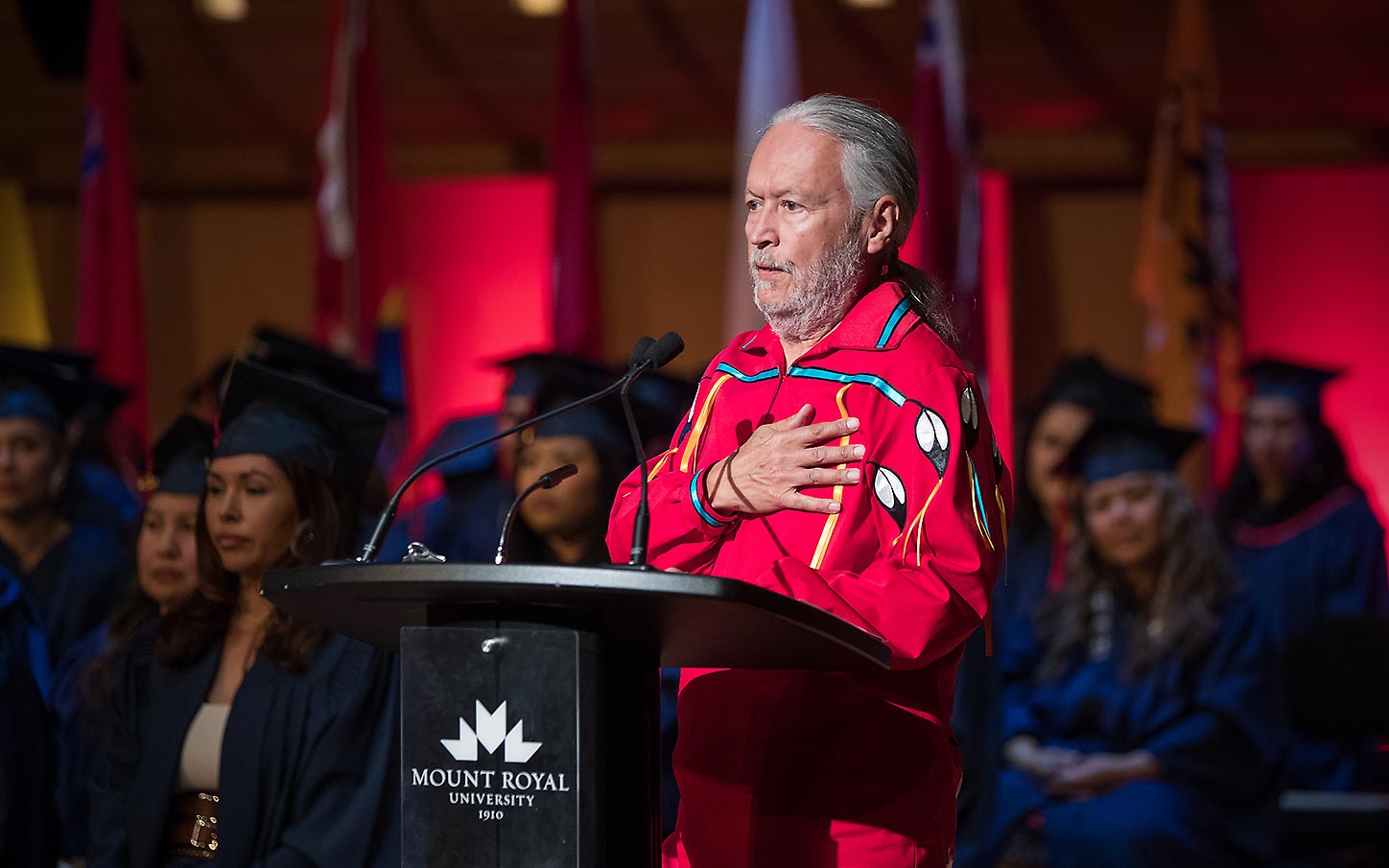John Fischer, Interim Associate Vice-President, Indigenization and Decolonization, Mount Royal University
Q&A
1. What do you think is the most exciting part about MRU recently renewing its designation as a Changemaker Campus? Why do you believe this work is so important?
I was excited to see the wide range of initiatives and activities happening on our campus and how changemaking is a common element of our collective identity. I am fascinated by the ways that our society has adopted the terminology and am most pleased that MRU faculty and students have continued to value changemaking as a key aspect of learning. Changemaking incorporates our values to improve the lives of others, to invest in living a good life, and to activate a better future.
2. How do you see the connection between Indigenization, decolonization and changemaking in post-secondary? What does this look like at MRU?
Changemaking at a system level is a collective effort that requires vision, energy, and patience. Educational reconciliation is as much a goal as it is a process, and about the renewal of and commitment to a treaty relationship. We understand the impacts that settler colonialism has had on Indigenous governance systems, educational systems, economies, spirituality and health. Rebuilding an ethical treaty relationship can be challenging, and we need to be invested and prepared to examine how power and control have limited and inhibited Indigenous student success. We must consider ways to address the past and move into a future honing Indigenous rights and self-determination. Many governments, institutions, and organizations are on this journey, and MRU continues on its path.
MRU has passionate faculty and students who are invested in indigenization and decolonization and their actions include:
- Connecting with elders and knowledge keepers in the Treaty 7 community,
- Partnering with Indigenous peoples on curriculum initiatives,
- Partnering with national and international Indigenous communities in research and teaching and learning,
- Actively supporting Indigenous student academic success
- Faculty partnerships with elders
The MRU community has actively advanced initiatives for many years, and their energy and commitment has not waned. The university community has been continuously learning and now it is time to renew the Indigenous Strategic Plan. I am always cautious about profiling success because I see indigenization as a journey and as teaching. Please note that the work being done on campus is characterized by a strong element of humility and drive to continuously learn and improve on our collective efforts.
3. As a Change Leader, what keeps you energized in doing this work?
I am energized by the passion and commitment on a campus fully engaged in indigenization. I thrive on the support for the many actions that are taking place. In addition to reconciliation initiatives, there are many ways that changemakers are working on campus. I see how alive changemaking is through coursework, research, events and celebrations, and student leadership.
4. What are you reading right now?
I am reading Colonized Classrooms by Sheila Cote-Meek and I am revisiting the MMIWG Calls to Justice as MRU prepares to revisit the Indigenous Strategy . I am also reading Moon of the Turning Leaves, and the next book on my list is Wandering Stars by Tommy Orange.
5. What has your pathway to senior leadership looked like? How has changemaking influenced your own path?
My journey has been influenced by the intent to provide value and service and to build good relationships in work that is intricately connected to hope for a better future. My work has been in the education system, initially in secondary education. I came to MRU as the Director of the Iniskim, tasked with broader campus responsibilities prior to senior-level leadership positions. This experience provides me with the experience and opportunity to work with a wide range of leaders in the university.
I see my grandfather’s influence in my own changemaking. His dedication to hard work, commitment to working for his people, and sense of responsibility are values that I live. This has translated to the ways that I work on campus and the ways that I volunteer in the Calgary community.
6. What is your advice to emerging Change Leaders and people trying to transform their institutions?
Systems change is a slow process that relies on collective work over a long period of time. It can sometimes feel as if the work is cyclical as initiatives operate, lose momentum, and new allies and collaborators become involved. I think that systems are self-replicating and sustaining by nature. Hence, it is essential to be diligent, passionate, and courageous as you work to disrupt and achieve your goals for a better way of doing things.
